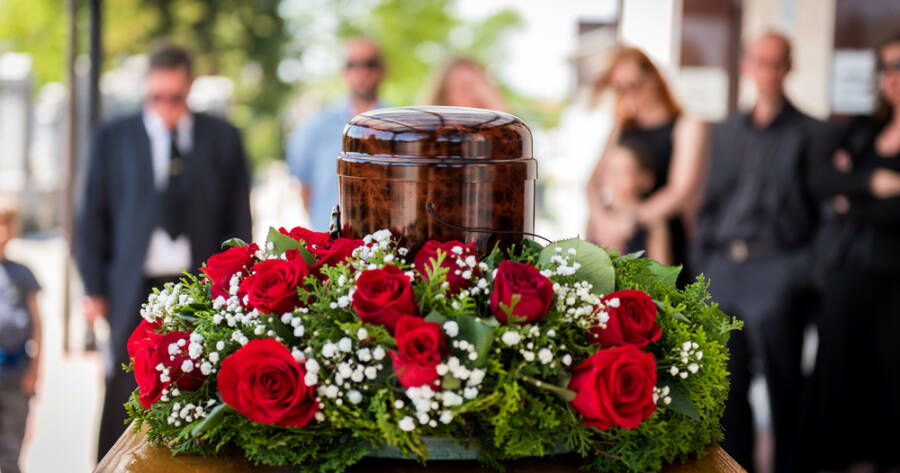When losing a loved one, families often choose between cremation and traditional burial services. Both options honor the deceased, but they differ in process, cultural considerations, and costs. Understanding what each service entails is key to making an informed decision during this emotional time.
The Cremation Process
Cremation involves the use of high heat to reduce the body to ashes, which are typically placed in an urn or other container. You might consider cremation if you’re looking for an option that offers more flexibility, as the ashes can be kept by family members, scattered in meaningful locations, or even placed in memorial jewelry or keepsakes.
The cremation process can take place immediately after death or following a traditional funeral service. If you prefer, a viewing or funeral ceremony can be held before the cremation, giving family and friends an opportunity to gather and say their goodbyes. This flexibility allows for a balance between traditional elements, like viewings and memorial services, and the simplicity of cremation.
Traditional Burial Services
In contrast, traditional burial services typically involve the embalming of the body, a viewing or wake, a religious or secular service, and interment in a cemetery. Many families choose this option if they want a physical place to visit their loved one, such as a gravesite, which can provide comfort over time. If religious or cultural traditions are important to you, traditional burial might align more closely with those customs.
Burial services often involve additional decisions, such as selecting a casket, grave plot, and headstone, as well as planning a graveside ceremony. For some families, the tangible elements of a burial service can provide a sense of closure and a lasting tribute to the deceased.
Flexibility and Memorial Options
Cremation offers more flexibility in terms of memorial options. With cremation, families are not restricted by time, allowing them to hold a memorial service at any point, whether shortly after the death or weeks later. If you value the opportunity to gather family and friends who might not be able to travel immediately, this flexibility could be a key benefit.
Traditional burial, on the other hand, often requires more immediate arrangements, as embalming or refrigeration is typically necessary to preserve the body for viewings and the funeral. This can make scheduling services a bit more constrained, but it also provides a more structured framework for mourning and support.
Environmental Considerations
If environmental concerns are important to you, cremation might seem like a more eco-friendly option at first glance. Cremation generally uses fewer physical resources than burial, as it eliminates the need for a casket, headstone, or burial plot. However, the process itself requires energy, and some cremation techniques release emissions into the atmosphere.
On the other hand, traditional burial may involve embalming chemicals and non-biodegradable caskets, which could raise concerns for some families. If environmental impact is a factor in your decision, you might also consider “green burial” options, which avoid embalming and use biodegradable materials.
Religious and Cultural Considerations
Your choice between cremation and traditional burial might be influenced by religious or cultural beliefs. Some religions, such as Christianity and Judaism, have historically favored traditional burial, while others, like Hinduism, practice cremation as a key part of their funeral rites. In recent years, many religious groups have become more accepting of cremation, though it’s always wise to consult with religious leaders if you’re unsure about the preferred practices.
Cultural preferences also play a role in this decision. In some cultures, burial is seen as a more respectful or customary practice, while others might view cremation as a more practical or spiritual option. Understanding how your family and community view these choices could help guide your decision.
Personal Preferences and Legacy
Ultimately, choosing between cremation and traditional burial often comes down to personal preferences. Some people feel strongly about the idea of being buried in a family plot or having a lasting monument, while others prefer the simplicity and flexibility of cremation.
If you’re planning ahead, it’s important to consider how you would like to be remembered and what kind of service best reflects your values and beliefs. For families making this decision after a loss, discussing the preferences of the deceased, as well as what brings the most comfort to those left behind, can guide the decision-making process.
Weighing the Differences
Cremation and traditional burial offer distinct differences in process, flexibility, environmental impact, and cultural considerations. Cremation might appeal to those looking for a simpler or more flexible option, while traditional burial can provide a sense of tradition, closure, and a permanent place for mourning. Understanding the real differences between these choices can help you make the best decision for honoring your loved one or planning your own arrangements.




